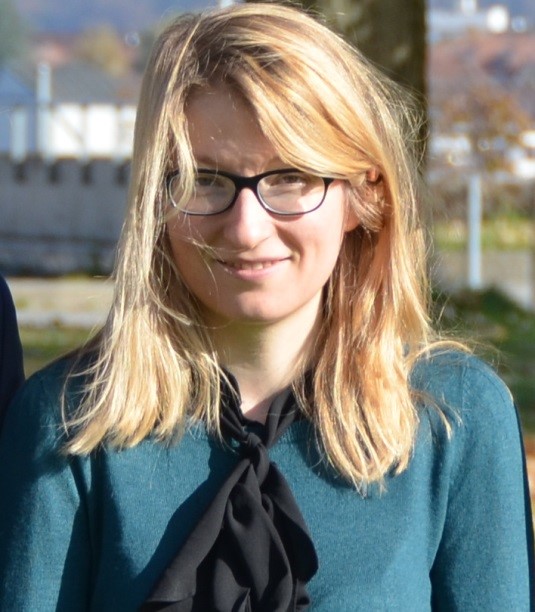Overview
Digitalization in the Industry
Digitalization as a mega-trend is characterized by the deployment of digital consumer technologies and the related business models. However, digital services also increasingly complement and determine the range of services of industrial companies. They are thereby fueling the so-called fourth industrial revolution. The emerging mobility services introduced by automobile manufacturers, AppStore offerings for sheet metal forming by machine tool suppliers, and software ecosystems launched by sensor manufacturers are some examples. The “smart service world” changes the mechanics of industrial companies' business models, and the established industry boundaries no longer apply. As traditional services prove to be no longer competitive, completely new ranges of services are emerging. The individualization of services as a consequence thereof leads to a dramatically increasing complexity of service provision. With more than 1,205 configuration possibilities for modern mid-range cars, customers expect “batch size 1” at the same costs as mass production.
Industry 4.0 can be considered the future organizational principle of industrial companies. It is characterized by networks of people and machines within the factories and increasing integration across companies, but also implies the usage of all available data and more autonomous value creation systems. For example, in small batch production, the product independently finds its way through production, thus production schedules and sequencing becomes less important.

Prof. Dr. Christine Legner
HEC Lausanne – The Faculty of Business and Economics of the University of Lausanne

Boris Otto
Fraunhofer-Institut für Materialfluss und Logistik, TU Dortmund
Contact Track Chairs
Sören Auer, Fraunhofer-Institut für Intelligente Analyse- und Informationssysteme IAIS
Thomas Berlage, Fraunhofer-Institut für Angewandte Informationstechnik FIT
Liane Haak, Hochschule Osnabrück, Fak. MKT, Institut für Management und Technik
Bernd Hellingrath, Westfälische Wilhelms-Universität Münster
Jorge Marx Gómez, Universität Oldenburg
Lars Mönch, Fern-Universität Hagen
Markus Rabe, TU Dortmund
Rainer Schmidt, Hochschule München
Steffen Strassburger, TU Ilmenau
Anette Weisbecker, Fraunhofer IAO
Sue Williams, Universität Koblenz-Landau
Axel Winkelmann, Universität Würzburg
Industry 4.0 can be considered the future organizational principle of industrial companies. It is characterized by networks of people and machines within the factories and increasing integration across companies, but also implies the usage of all available data and more autonomous value creation systems. For example, in small batch production, the product independently finds its way through production, thus production schedules and sequencing becomes less important.
Possible Topics
- Business models within the smart service world and for Industry 4.0
- Methods for business process and digital service design in industrial companies
- Reference models for Industry 4.0
- Information architectures and information models (including digital twin approach) for Industry 4.0
- Innovative technologies and their application (iBeacon, blockchain, augmented reality,etc.)
- Application scenarios for the Internet of Things and Industry 4.0
- Case studies
- Data processing, analysis, and visualization, as well as data management for Industry 4.0
- Analytical methods, decision-making and planning systems for production and logistics
- Domain-specific approaches, e.g. in mechanical engineering, automobile manufacturing, logistics, or process industries
- Standardization needs and interoperability of data, applications, and processes
- Semantic technologies for industrial companies
- Industrial data platforms
- Industrial Internet
- Capabilities for Industry 4.0 including skills and human factors
- Additive production (3D printing, etc.)
Track Chairs

Prof. Dr. Christine Legner
HEC Lausanne – The Faculty of Business and Economics of the University of Lausanne

Boris Otto
Fraunhofer-Institut für Materialfluss und Logistik, TU Dortmund
Contact Track Chairs
Associate Editors
Jörn Altmann, Seoul National University, Seoul, KoreaSören Auer, Fraunhofer-Institut für Intelligente Analyse- und Informationssysteme IAIS
Thomas Berlage, Fraunhofer-Institut für Angewandte Informationstechnik FIT
Liane Haak, Hochschule Osnabrück, Fak. MKT, Institut für Management und Technik
Bernd Hellingrath, Westfälische Wilhelms-Universität Münster
Jorge Marx Gómez, Universität Oldenburg
Lars Mönch, Fern-Universität Hagen
Markus Rabe, TU Dortmund
Rainer Schmidt, Hochschule München
Steffen Strassburger, TU Ilmenau
Anette Weisbecker, Fraunhofer IAO
Sue Williams, Universität Koblenz-Landau
Axel Winkelmann, Universität Würzburg
Service Systems and Hybrid Value Creation
Service systems are complex socio-technical systems that enable value co-creation. An increasing number of activities of public and private organizations intentionally are engineered and managed as service systems. Innovative ICT-enabled service systems increasingly are a key to growth and social welfare. The information systems discipline (IS) is positioned ideally to contribute extensively to this interdisciplinary research field. Service systems research in IS focuses on service systems as the organizing logic or architectural paradigm for developing and operating information systems (IS) and new approaches for the flexible and efficient provision of digital services (e.g. cloud services). Moreover, the increasing evolution of physical systems into cyber-physical systems and the design of data-driven services for corporate customers and private clients offer substantial opportunities for service systems innovation, such as hybrid value creation. The track is generally open to all research on ICT-enabled service systems and cyber-physical systems & services. However, we particularly encourage to submit research that advances evidence-based design knowledge on the engineering of service systems.

Prof. Dr. Tilo Böhmann
Universität Hamburg, Department of Informatics

Prof. Dr. Kathrin Möslein
Friedrich-Alexander University of Erlangen-Nürnberg, School of Business & Economics
Contact Track Chairs
Eva Bittner, Universität Hamburg
Regine Dörbecker , Techniker Krankenkasse Hamburg
Heiko Gewald, Neu-Ulm University of Applied Sciences
Julia Jonas, FAU Erlangen-Nürnberg
Axel Korthaus, Victoria University, Melbourne, Australien
Martin Matzner, ERCIS - WWU Münster
Christoph Peters, Universität St.Gallen
Alexander Pflaum, Universität Bamberg
Jens Pöppelbuß, Universität Bremen
Angela Roth, FAU Erlangen-Nürnberg
Hannes Rothe, Freie Universität Berlin
Gerhard Satzger, KIT
Carsten Schultz, Christian-Albrechts-Universität zu Kiel
Falk Uebernickel, Universität St.Gallen
Vivek Velamuri, HHL Leipzig Graduate School of Management
Nancy Wünderlich, Universität Paderborn
Andreas Zolnowski, Universität Hamburg / IT-Management und -Consulting
Possible Topics
- Service Systems Engineering
- Cyber-physical systems and services
- Digital Industrial Service Systems
- Data-driven services
- Service Innovation & Servitization
- Service Innovation Capabilities
- Information Systems as a service / Cloud services
- Cyber-physical systems and services
- Models, methods, and tools for service systems engineering
- Piloting of novel service systems
- Architecture and modularity of service systems
- Interaction with service systems / Actor Engagement
- Resource mobilization for service systems (e.g. resource sharing, user-generated services)
Track chairs

Prof. Dr. Tilo Böhmann
Universität Hamburg, Department of Informatics

Prof. Dr. Kathrin Möslein
Friedrich-Alexander University of Erlangen-Nürnberg, School of Business & Economics
Contact Track Chairs
Associate Editors
Jürgen Anke, Hochschule für Telekommunikation LeipzigEva Bittner, Universität Hamburg
Regine Dörbecker , Techniker Krankenkasse Hamburg
Heiko Gewald, Neu-Ulm University of Applied Sciences
Julia Jonas, FAU Erlangen-Nürnberg
Axel Korthaus, Victoria University, Melbourne, Australien
Martin Matzner, ERCIS - WWU Münster
Christoph Peters, Universität St.Gallen
Alexander Pflaum, Universität Bamberg
Jens Pöppelbuß, Universität Bremen
Angela Roth, FAU Erlangen-Nürnberg
Hannes Rothe, Freie Universität Berlin
Gerhard Satzger, KIT
Carsten Schultz, Christian-Albrechts-Universität zu Kiel
Falk Uebernickel, Universität St.Gallen
Vivek Velamuri, HHL Leipzig Graduate School of Management
Nancy Wünderlich, Universität Paderborn
Andreas Zolnowski, Universität Hamburg / IT-Management und -Consulting
Enterprise Architecture Management and Business Process Management
The establishment of successful business models requires the specification and implementation of suitable and appropriate business processes models as well as supporting information systems. For the accomplishment of customer requirements, business models have to be integrated inter- and intra-organisational to reconcile resources and expertise customer oriented. Within business process management, methods, models and tools are developed address business requirements concerning strategic, analytic, design-oriented and implementation specific aspects of business processes. Therefore, business process management contributes to establishing different kinds of business models. This raises issues of holistic, integrated examination as well as the implementation and establishment of business process management life cycle. The modelling of business processes is of significant importance here since models are used in different stages of the life cycle.
The coordination of business processes and information systems is facilitated by the management of the enterprise architecture. More so, models are used to perceive, to plan, and to develop enterprise architectures. The enterprise architecture management defines the transformation path and adjusts it continuously in order to support planning and prioritisation of projects and programs. Thus, the management of the enterprise architecture and the business processes are closely interconnected.
This track provides a panel for management approaches and methods for the control of enterprise architectures and business processes with respect to the evaluation and development of their performance and efficiency.

Prof. Dr. Jan Mendling
Vienna University of Economics and Business

Prof. Dr. Peter Loos
Saarland University and IWI at DFKI
Contact Track Chairs
Stephan Aier, Universität St.Gallen
Daniel Beimborn, Frankfurt School of Finance and Management
Martin Bichler, TU München
Jan vom Brocke, Universität Liechtenstein
Stefan Eicker, Universität Duisburg-Essen
Werner Esswein, TU Dresden
Peter Fettke, Universität des Saarlandes
Daniel Fürstenau, Freie Universität Berlin
Reinhard Jung, Universität St.Gallen
Agnes Koschmider, Karlsruher Institut für Technology
Dimitris Karagiannis, Universität Wien
Henrik Leopold, VU Amsterdam
Florian Matthes, TU München
Michael zur Muehlen, Stevens Institute of Technology
Andreas Oberweis, Karlsruher Institut für Technology
Sven Overhage, Universität Bamberg
Henderik Proper, Luxembourg Institute of Science and Technology
Stefanie Rinderle-Ma, Universität Wien
Michael Rosemann, Queensland University of Technology
Elmar J. Sinz, Universität Bamberg
Dirk Stelzer, TU Ilmenau
Oliver Thomas, Universität Osnabrück
Klaus Turowski, Universität Magdeburg
Potential topics
- modelling methods for business processes and enterprise architectures
- impact of digitalisation on business processes and enterprise architecture
- new technical concepts for business processes and enterprise architecture, e.g. sensor data, Internet of Things, cloud computing, in-memory databases
- distribution, integration and module management of business processes
- automatic analysis technologies for business processes and enterprise architecture, e.g. process mining, natural language processing or knowledge extraction
- strategic management of business process and enterprise architectures, e.g. process architecture, process portfolio management and reference models
- cultural factors of business process management and enterprise architecture management
- challenges with implementation of business processes and of the enterprise architecture management
- approaches on integrating the management of business process and of enterprise architecture management
Track chairs

Prof. Dr. Jan Mendling
Vienna University of Economics and Business

Prof. Dr. Peter Loos
Saarland University and IWI at DFKI
Contact Track Chairs
Associate Editors
Witold Abramowicz, Universität PoznanStephan Aier, Universität St.Gallen
Daniel Beimborn, Frankfurt School of Finance and Management
Martin Bichler, TU München
Jan vom Brocke, Universität Liechtenstein
Stefan Eicker, Universität Duisburg-Essen
Werner Esswein, TU Dresden
Peter Fettke, Universität des Saarlandes
Daniel Fürstenau, Freie Universität Berlin
Reinhard Jung, Universität St.Gallen
Agnes Koschmider, Karlsruher Institut für Technology
Dimitris Karagiannis, Universität Wien
Henrik Leopold, VU Amsterdam
Florian Matthes, TU München
Michael zur Muehlen, Stevens Institute of Technology
Andreas Oberweis, Karlsruher Institut für Technology
Sven Overhage, Universität Bamberg
Henderik Proper, Luxembourg Institute of Science and Technology
Stefanie Rinderle-Ma, Universität Wien
Michael Rosemann, Queensland University of Technology
Elmar J. Sinz, Universität Bamberg
Dirk Stelzer, TU Ilmenau
Oliver Thomas, Universität Osnabrück
Klaus Turowski, Universität Magdeburg
Digital Work
Digital technologies afford great opportunities to shape the future of work. For decades, IS research has discussed technology-induced changes of how work is and could be done. Examples are the E-Lance Economy (Malone/Laubacher 1998), supporting work (CSCW, outsourcing) and teams (FLOSS) that are distributed over spatial, temporal and cultural distances and their impact on private and social life. The ubiquity of modern technologies such as smart phones, tablet and wearables that were mostly aimed at off-the-job purposes now offer even broader opportunities as they are increasingly used to improve work-related tasks as well. This facilitates more flexible and individualized work structures and is currently reflected in concepts such as location independent work or digital nomadism.
The track invites contributions that help to understand and design all facets of digital work including requirements, opportunities and intended and unintended consequences. From an organizational perspective, we need to develop and evaluate adequate governance and management concepts. For individuals, much research is needed to understand how IT can be used to support and balance work and life tasks. At the same time, we need to be aware of and find answers to a possible dark side of digital work. For example, the often discussed Home Office option can offer better flexibility and integration of an individual’s different life goals yet possibly at the cost of social isolation, career disadvantages and additional work load.
What, then, are novel ideas and concepts for using digital technologies to improve how humans can work? Due to the interdisciplinary nature of work-related topics, we explicitly welcome all methods and also approaches from other disciplines such as management and psychology.

Prof. Dr. Tim Weitzel
Universität Bamberg

Prof. Dr. Dr. Björn Niehaves
Universität Siegen
Contact Track Chairs
Ricardo Büttner, University of Hohenheim // FOM Univ. of Applied Sciences
Andreas Eckhardt, GGS Heilbronn
Sven Laumer, Universität Bamberg
Christian Maier, Universität Bamberg
Volkmar Pipek, Universität Siegen
Daniel Schlagwein , UNSW Australia
Kai Spohrer, Universität Mannheim
Stefan Strohmeier, Universität des Saarlandes
Heinz-Theo Wagner, GGS Heilbronn
Potential topics
- new work modes enabled by digital technologies
- social change and technology
- opportunities and perils associated with tele work/home office/job sharing
- individualized IT
- work life balance and the intersection of work and private life
- “smart” technologies
- virtual/augmented reality for digital work
- concepts and design theories fort the modern work place
- collabortaive work
- gamification on the job
- digital work culture and lifestyles
- identifying and matching candidates, firms, and tasks
Track Chairs

Prof. Dr. Tim Weitzel
Universität Bamberg

Prof. Dr. Dr. Björn Niehaves
Universität Siegen
Contact Track Chairs
Associate Editors
Angelika C. Bullinger-Hoffmann , TU ChemnitzRicardo Büttner, University of Hohenheim // FOM Univ. of Applied Sciences
Andreas Eckhardt, GGS Heilbronn
Sven Laumer, Universität Bamberg
Christian Maier, Universität Bamberg
Volkmar Pipek, Universität Siegen
Daniel Schlagwein , UNSW Australia
Kai Spohrer, Universität Mannheim
Stefan Strohmeier, Universität des Saarlandes
Heinz-Theo Wagner, GGS Heilbronn
IT Management and IT Strategy
Each company and each manager who strives „Towards Thought Leadership in Digital Transformation” has to excel in IT management and in IT strategy. Consequently, various new and challenging research topics emerge in this domain: First, technologies like Cloud Computing and practices like “bring your own device” challenge traditional boundaries of IT management. Second, the goals of IT management like efficiency, flexibility, and risk limitation have started to get re-weighted. Third, in order to cope with such changed requirements, organizations have to refine well-established IT management methods and tools. Fourth, those developments result in various changes to the role of IT management in organizations (for example the role of the CIO in the organization).
In sum, new and interesting research opportunities emerge that address social, organizational, technical, and economic issues of IT management and IT strategy at different levels of analysis (e.g. individual, organizational, and inter-organizational).

Prof. Dr. Susanne Strahringer
Technische Universität Dresden, Fakultät Wirtschaftswissenschaften
Lehrstuhl für Wirtschaftsinformatik, insbes. Informationssysteme in Industrie und Handel

Prof. Dr. Thomas Widjaja
Universität Passau, Fakultät für Wirtschaftswissenschaften
Lehrstuhl für Wirtschaftsinformatik mit Schwerpunkt Betriebliche Informationssysteme
Contact Track Chairs
Kerstin Fink, Universität Innsbruck
Jin Gerlach, Technische Universität Darmstadt
Thomas Huber, Universität Bern
Matthias Knoll, Hochschule Darmstadt
Oliver Krancher, Universität Bern
Thomas Kude, Universität Mannheim
Christian Leyh, TU Dresden
André Loske, Technische Universität Darmstadt
Jan Muntermann, Georg-August-Universität Göttingen
Jella Pfeiffer, Karlsruher Institut für Technologie
Christoph Rosenkranz, Universität zu Köln
Silvia Schacht, Universität Mannheim
Nils Urbach, Universität Bayreuth
Kristin Weber, FHWS Hochschule für angewandte Wissenschaften Würzburg-Schweinfurt
Markus Westner, OTH Regensburg
Martin Wiener, Bentley University
Manuel Wiesche, TU München
Till Winkler, Copenhagen Business School
Rüdiger Zarnekow, TU Berlin
Potential topics
- IS Strategy and Strategic Planning Methods
- Strategic Use and Value of IS
- Challenges and Implications of Cloud Computing
- IS Sourcing – Multi-Sourcing, Outsourcing & Backsourcing
- Governance, Risk, Compliance
- Project- & Change Management
- Service- & Application Management
- IS/IT Management Methods and Tools
- Transformed Role of CIOs
- Organizing Internal IT
Track Chairs

Prof. Dr. Susanne Strahringer
Technische Universität Dresden, Fakultät Wirtschaftswissenschaften
Lehrstuhl für Wirtschaftsinformatik, insbes. Informationssysteme in Industrie und Handel

Prof. Dr. Thomas Widjaja
Universität Passau, Fakultät für Wirtschaftswissenschaften
Lehrstuhl für Wirtschaftsinformatik mit Schwerpunkt Betriebliche Informationssysteme
Contact Track Chairs
Associate Editors
Frederik Ahlemann, Universität Duisburg-EssenKerstin Fink, Universität Innsbruck
Jin Gerlach, Technische Universität Darmstadt
Thomas Huber, Universität Bern
Matthias Knoll, Hochschule Darmstadt
Oliver Krancher, Universität Bern
Thomas Kude, Universität Mannheim
Christian Leyh, TU Dresden
André Loske, Technische Universität Darmstadt
Jan Muntermann, Georg-August-Universität Göttingen
Jella Pfeiffer, Karlsruher Institut für Technologie
Christoph Rosenkranz, Universität zu Köln
Silvia Schacht, Universität Mannheim
Nils Urbach, Universität Bayreuth
Kristin Weber, FHWS Hochschule für angewandte Wissenschaften Würzburg-Schweinfurt
Markus Westner, OTH Regensburg
Martin Wiener, Bentley University
Manuel Wiesche, TU München
Till Winkler, Copenhagen Business School
Rüdiger Zarnekow, TU Berlin
Interactions and Interfaces
This track addresses different topics around Human-Computer-Interaction, Computer-Supported Collaborative Work, E-Learning, Mobile and Ubiquitous Systems and User-adaptive Systems.
The following list of possible topics is neither exclusive nor concluding. All types of interesting and innovative research around the interaction of human and computer is welcome. We also welcome all different research methods including analytical, conceptual, design oriented, empirical and theoretical approaches.
Possible topics
- Interactions in the Internet of Things and in Cyber Physical Systems
- Participative and socially acceptable design of Cyber Physical Systems
- Interactions with mobile and social media
- Interactions with Pervasive Systems in medical science, production, work and leisure
- Pervasive und ubiquitous support for knowledge management
- Interaction und interfaces in Open Innovation
- Usable Privacy and safety in the Internet of Things and Cyber Physical Systems
- Analysis and modelling of interactions and interfaces in different application areas (e-business, knowledge management, leisure and entertainment, transportation, engineering medical science etc.)
- Interactions in business processes and business models
- Economic and societal aspects of interactions and interfaces
From the submissions in this track we will select some to be invited for a special issue of the journal i-com – Journal of Interactive Media.
Track Chairs

Prof. Dr. Ulrike Lechner
Universität der Bundeswehr München

Prof. Dr. Michael Koch
Universität der Bundeswehr München
Contact Track Chairs
Associate Editors
Andreas Breiter, Ifib, Universität BremenMichael Granitzer, Universität Passau
Jens Gulden, Universität Duisburg-Essen
Joerg Haake, FernUniversität in Hagen
Peter Heinrich, Universität Zürich
Heinrich Hussmann, LMU München
Monique Janneck, Fachbereich Elektrotechnik und Informatik, FH Lübeck
Martin Kristof Kindsmüller, Technische Hochschule Brandenburg
Stefan Kirn, Universität Hohenheim
Carsten Lucke, Technische Hochschule Mittelhessen
Rainer Malaka, Universität Bremen
Wolfgang Prinz, Fraunhofer FIT / RWTH Aachen
Christian Reuter, Universität Siegen
Alexander Richter, IT-University Copenhagen
Albrecht Schmidt, Universität Stuttgart
Gerhard Schwabe, Universität Zürich
Volker Wulf, Universität Siegen
Learning and Knowledge Management
There has been a continuously lively debate in the field of (e)learning and knowledge management for the last 25 years by academics and professionals alike. The field has changed substantially over this period and today. Powerful mobile and wearable devices enable employees to receive and share knowledge in any workplace situation and to be constantly connected with their knowledge and learning network. Businesses and organizations are busy to deploy technologies for capturing and making sense of (big) data assets in these social knowledge environments. Thereby, organizations need to find a balance between opening up for facilitating innovation processes and the need to define the knowledge boundaries.
Individual, team and organizational learning and knowledge processes and practices are tied into large-scale knowledge and learning systems. SMEs join networks to cope with the faster innovation cycles and to localize knowledge from global knowledge hubs. Cities are investing in technology to become smart cities, regions ready themselves to tap into the potential of global knowledge creation and many questions arise around how we can sustain knowledge societies that bridge across regional, national or continental boundaries. This track intends to offer a platform for discussing recent advancements concerning learning and knowledge managements from a business, economics, managerial, organizational, social, technological and societal perspective. We encourage submissions of papers employing a conceptual, design or behavioral research approach.

Prof. Dr. Matthias Schumann
University of Goettingen, Chair of Application Systems and E-Business

Prof. Dr. Ronald Maier
University of Innsbruck, Dept. of Information Systems, Production and Logistics Management
Contact Track Chairs
Markus Bick, ESCP Berlin
Freimut Bodendorf , FAU Erlangen-Nürnberg
Michael H. Breitner, Leibniz Universität Hannover
Hans-Georg Fill, Universität Wien
Kai Fischbach, Universität Bamberg
Martin Gersch, Freie Universität Berlin
Uwe Hoppe, Universität Osnabrück
Nina Kahnwald, Universität Siegen
Miriam Minor, Goethe Universität Frankfurt/Main
Jan Pawlowski, University of Applied Sciences Ruhr-West
Ulrich Remus, Universität Innsbruck
Christoph Rensind, Technische Universität Darmstadt
Eric Schoop, Technische Universität Dresden
Stephan Smolnik, FernUniversität Hagen
Matthias Söllner, Universities of St.Gallen and Kassel
Stefan Thalmann, Universität Innsbruck
Klaus Tochtermann, Universität Kiel
Individual, team and organizational learning and knowledge processes and practices are tied into large-scale knowledge and learning systems. SMEs join networks to cope with the faster innovation cycles and to localize knowledge from global knowledge hubs. Cities are investing in technology to become smart cities, regions ready themselves to tap into the potential of global knowledge creation and many questions arise around how we can sustain knowledge societies that bridge across regional, national or continental boundaries. This track intends to offer a platform for discussing recent advancements concerning learning and knowledge managements from a business, economics, managerial, organizational, social, technological and societal perspective. We encourage submissions of papers employing a conceptual, design or behavioral research approach.
Potential topics
- Business and Learning Analytics
- Connectivity and its Impact on Knowledge Management
- Game-based learning
- Global, Inter-Cultural and Interdisciplinary Aspects of Knowledge Management
- Intellectual Capital and Knowledge Valuation
- Knowledge Capturing, Creation and Sharing
- Knowledge Boundaries, Protection and Risk Management
- Knowledge Management and Social Software
- Large-Scale Knowledge and Learning Systems
- Massive Open Online Courses (MOOCs) incl. Business Models
- Mobile Edutainment
- Mobile and Wearable Devices for Knowledge and Learning Management
- Ontologies and Knowledge Representation
- Open Educational Resources
- Skill, Competency and Experience Management
- Smart Cities, Companies, Organizations and Societies
- Social Knowledge Management
- Sustainable Knowledge Societies
- Technology-Enhanced Learning
- Virtual and Augmented Learning
Track Chairs

Prof. Dr. Matthias Schumann
University of Goettingen, Chair of Application Systems and E-Business

Prof. Dr. Ronald Maier
University of Innsbruck, Dept. of Information Systems, Production and Logistics Management
Contact Track Chairs
Associate Editors
Ulrike Baumöl, FernUniversität HagenMarkus Bick, ESCP Berlin
Freimut Bodendorf , FAU Erlangen-Nürnberg
Michael H. Breitner, Leibniz Universität Hannover
Hans-Georg Fill, Universität Wien
Kai Fischbach, Universität Bamberg
Martin Gersch, Freie Universität Berlin
Uwe Hoppe, Universität Osnabrück
Nina Kahnwald, Universität Siegen
Miriam Minor, Goethe Universität Frankfurt/Main
Jan Pawlowski, University of Applied Sciences Ruhr-West
Ulrich Remus, Universität Innsbruck
Christoph Rensind, Technische Universität Darmstadt
Eric Schoop, Technische Universität Dresden
Stephan Smolnik, FernUniversität Hagen
Matthias Söllner, Universities of St.Gallen and Kassel
Stefan Thalmann, Universität Innsbruck
Klaus Tochtermann, Universität Kiel
Information Privacy and Information Security
With the ubiquitous spread of information systems throughout most areas of our daily lives – spanning from government, to banking, health management, home automation, and mobile computing – meeting the challenges of information privacy and information security is the hot issue for various stakeholders around the globe. Moreover, with the proliferation of social media and mobile computing, addressing concerns over information privacy and information security has grown in importance and triggered public discussions at all levels. Today, the scale of information available to information system providers is unprecedented. Millions of users make, for instance, their personal information readily available on social media platforms. In addition, increasing use of smartphones spurs the growth of mobile applications allowing also for location-based capture of user behavior. Especially users with low internet literacy (eg, children, seniors) are at risk for the emerging and manifesting threats.
This track seeks contributions that address the prevalent challenges of information privacy and information security. We especially encourage submissions (full research papers, prototype papers, student papers) focused on the social web and mobile computing across a variety of industries (eg, health, social, finance, location-based services). All methodological approaches are welcome in this track, including, but not limited to design science research, experiments, qualitative and quantitative research, case studies, as well as conceptual papers.

Prof. Dr. Ali Sunyaev
Universität Kassel

Prof. Dr. Hanna Krasnova
Universität Potsdam
Contact Track Chairs
Tatiana Ermakova
Ben Fabian
Kathrin Figl
Daniel Fischer, TU Ilmenau
Bogdan Franczyk, Universität Leipzig / WIFA
Henner Gimpel , Universität Augsburg, Fraunhofer FIT
Jens Grossklags
Irina Heimbach
Dominik Herrmann
Doğan Kesdoğan
Mathias Klier
Bart Knijnenburg
Günter Müller
Peter Niemeyer, Leuphana Universität Lüneburg
Mario Silic
Sarah Spiekermann
Helena Wenninger
Thomas Wöhner, MLU Halle-Wittenberg, Lehrstuhl für E-Business
This track seeks contributions that address the prevalent challenges of information privacy and information security. We especially encourage submissions (full research papers, prototype papers, student papers) focused on the social web and mobile computing across a variety of industries (eg, health, social, finance, location-based services). All methodological approaches are welcome in this track, including, but not limited to design science research, experiments, qualitative and quantitative research, case studies, as well as conceptual papers.
Potential topics
- Information privacy perceptions and behaviour
- Advances in usable information privacy and information security
- Intercultural and gender perspectives on information privacy and information security
- The privacy-related attitude-behaviour gap
- Assessing the value of information privacy for various stakeholders
- Behavioural economics of information security and information privacy
- Design, development, and evaluation of privacy-enhancing technologies
- Employee security policy compliance
- Cybercrime and security threats/violations
- Information security audit and control
- Legal and social aspects of information security and information privacy
- Cyber bullying and cyber mobbing
Track Chairs

Prof. Dr. Ali Sunyaev
Universität Kassel

Prof. Dr. Hanna Krasnova
Universität Potsdam
Contact Track Chairs
Associate Editors
Christine BauerTatiana Ermakova
Ben Fabian
Kathrin Figl
Daniel Fischer, TU Ilmenau
Bogdan Franczyk, Universität Leipzig / WIFA
Henner Gimpel , Universität Augsburg, Fraunhofer FIT
Jens Grossklags
Irina Heimbach
Dominik Herrmann
Doğan Kesdoğan
Mathias Klier
Bart Knijnenburg
Günter Müller
Peter Niemeyer, Leuphana Universität Lüneburg
Mario Silic
Sarah Spiekermann
Helena Wenninger
Thomas Wöhner, MLU Halle-Wittenberg, Lehrstuhl für E-Business
Business Innovations and Business Models
Information and communication technologies (ICT) are increasingly becoming a vital component of novel and often disruptive business innovations. They are changing products, services as well as entire business models fundamentally. Nearly all sectors and industries need to regularly question their current business models in order to survive in competition. Digital heavy weights but also young start-ups use ICT as “enabler” in order to regularly enable novel business models which are leading to far-reaching changes in economy and society. Innovations in ICT are providing manifold opportunities both, for the IT-oriented industry as well as for application domains such as big data, cloud computing and digital life. Great changes are also happening in classical service and product oriented businesses, both in business-to-business and business-to-consumer relationships. Digital business innovations and business models change contemporary value creation networks significantly.
For this track, we welcome research on the influence of innovative digital technologies on the design of different kinds of novel business models (e.g. platform based, freemium based business models) as well as on digital transformation processes in enterprises (e.g. change towards multi- and omni-channel strategies). This includes both, the provider side such as companies, enterprises and service providers as well as the consumer side. Moreover, we welcome research on new ways of innovation management, e.g. open innovation or generation of innovations via the “wisdom of the crowd”.
The following list of topics is neither exclusive nor exhaustive. All kinds of interesting artifacts, novel, ICT-based business models and methodological innovations are welcome in the track. We are open towards different research methodologies. Analytical, conceptual, constructivist, empirical and theoretical approaches are welcome.

Prof. Dr. Daniel Veit
University of Augsburg, Faculty of Business and Economics
Copenhagen Business School, Department of IT Management

Prof. Dr. Alexander Benlian
Darmstadt University of Technology, Chair of Information Systems & E-Services Department of Business, Law and Economics
Contact Track Chairs
Sabine Baumann, Jade Hochschule
Maik Hammerschmidt, Univeristät Göttingen
Georg Herzwurm, Universität Stuttgart
Thomas John, Universität Paderborn
Alexander Kock, Technische Universität Darmstadt
Attila Marton, Copenhagen Business School, Dänemark
Dirk Neumann, Universität Freiburg
Christian Schlereth, WHU Koblenz
Monika Schuhmacher, Universität Gießen
Martin Spann, LMU München
Frank Teuteberg, Universiät Osnabrück
Frédéric Thiesse, Universität Würzburg
Manuel Trenz, Universität Augsburg
Virpi Kristiina Tuunainen, Alto University, Finnland
Marcus Wagner, Universität Augsburg
Felix Wortmann, Universität St.Gallen, Schweiz
Christoph Zott, University of Navarra, Spanien
For this track, we welcome research on the influence of innovative digital technologies on the design of different kinds of novel business models (e.g. platform based, freemium based business models) as well as on digital transformation processes in enterprises (e.g. change towards multi- and omni-channel strategies). This includes both, the provider side such as companies, enterprises and service providers as well as the consumer side. Moreover, we welcome research on new ways of innovation management, e.g. open innovation or generation of innovations via the “wisdom of the crowd”.
The following list of topics is neither exclusive nor exhaustive. All kinds of interesting artifacts, novel, ICT-based business models and methodological innovations are welcome in the track. We are open towards different research methodologies. Analytical, conceptual, constructivist, empirical and theoretical approaches are welcome.
Potential topics
- ICT as trigger, driver and designer of (disruptive) business model innovations
- ICT based implementation of platform based business models and analysis of the effects on platform stakeholder
- ICT based, data centric business models
- Digital transformation of business models
- From offline channels to online-/multi-/omni-channels
- From on-premise to on-demand, cloud-based models
- From stationary to mobile
- Development and evaluation of business models in different platform contexts (e.g. social media, sharing economy, crowdsourcing, electronic payments/currencies, open data, could computing, software-as-a-service)
- ICT and novel ways of innovation management (e.g. open innovation, idea storms, wisdom of the crowd)
- Novel ways of funding innovations (e.g. crowdfunding)
- Digital entrepreneurial culture, change in dynamics of start-ups based on digital business models
- Digital entrepreneurship
- Consumer behavior in digital value creation (e.g. value co-creation)
Track Chairs

Prof. Dr. Daniel Veit
University of Augsburg, Faculty of Business and Economics
Copenhagen Business School, Department of IT Management

Prof. Dr. Alexander Benlian
Darmstadt University of Technology, Chair of Information Systems & E-Services Department of Business, Law and Economics
Contact Track Chairs
Associate Editors
Paul Alpar, Universität MarburgSabine Baumann, Jade Hochschule
Maik Hammerschmidt, Univeristät Göttingen
Georg Herzwurm, Universität Stuttgart
Thomas John, Universität Paderborn
Alexander Kock, Technische Universität Darmstadt
Attila Marton, Copenhagen Business School, Dänemark
Dirk Neumann, Universität Freiburg
Christian Schlereth, WHU Koblenz
Monika Schuhmacher, Universität Gießen
Martin Spann, LMU München
Frank Teuteberg, Universiät Osnabrück
Frédéric Thiesse, Universität Würzburg
Manuel Trenz, Universität Augsburg
Virpi Kristiina Tuunainen, Alto University, Finnland
Marcus Wagner, Universität Augsburg
Felix Wortmann, Universität St.Gallen, Schweiz
Christoph Zott, University of Navarra, Spanien
User-Centered Information Systems
With the ambient availability of information technologies new challenges and opportunities for information systems research specifically on the individual level of the user are rising.
The track “User-Centered Information Systems” (UIS) emphasizes research with focus on understanding and designing the interaction of users with digital artefacts. In particular, we are interested in research investigating the IS lifecycle from a holistic viewpoint covering development and management aspects following the “user, use & utility”-paradigm.
We welcome submissions of any methodological foundation that theoretically and practically contribute to the advanced understanding and design of user-centered information systems.

Prof. Dr. Thomas Hess
LMU Munich, Institute for Information Systems and New Media

Prof. Dr. Alexander Mädche
Karlsruhe Institute of Technology (KIT), Institute of Information Systems and Marketing (IISM), Karlsruhe Service Research Institute (KSRI)
Contact Track Chairs
Michel Clement, Universität Hamburg
Armin Heinzl, Universität Mannheim
Hartmut Hoehle, University of Arkansas
Alexander Ilic, ITEM, Universität St.Gallen
Anthony Jameson, DFKI
Johann Kranz , Universität Göttingen
Karl Lang, CUNY
Christiane Lehrer, Universität St.Gallen
Christian Matt, LMU München
Stefan Morana, Karlsruhe Institute for Technology / Institute of Information Systems and Marketing
Benjamin Müller, Universität of Groningen
Michael Räckers, ERCIS - WWU Münster
Rene Riedl, JKU Linz
Susanne Robra, Technische Universität Braunschweig
Hannes Schlieter, TU Dresden
Stefan Stieglitz, Duisburg
Verena Tiefenbeck, ETH Zürich/ Universität Bonn
The track “User-Centered Information Systems” (UIS) emphasizes research with focus on understanding and designing the interaction of users with digital artefacts. In particular, we are interested in research investigating the IS lifecycle from a holistic viewpoint covering development and management aspects following the “user, use & utility”-paradigm.
We welcome submissions of any methodological foundation that theoretically and practically contribute to the advanced understanding and design of user-centered information systems.
Potential topics
- Business Models and Value Chains for NIS
- Development/Modelling of UCS
- User Interface Design for UCS and Designing for User Experiences
- Value-oriented Design of UCS (e.g. Privacy)
- Adoption, Use and Diffusion of NIS
- Data-driven Solutions for UCS
- Hedonic UCS
- Persuasion and Gamification in UCS
- Impact of NIS to Users and Customers
Track chairs

Prof. Dr. Thomas Hess
LMU Munich, Institute for Information Systems and New Media

Prof. Dr. Alexander Mädche
Karlsruhe Institute of Technology (KIT), Institute of Information Systems and Marketing (IISM), Karlsruhe Service Research Institute (KSRI)
Contact Track Chairs
Associate Editors
Jörg Claussen, LMU MünchenMichel Clement, Universität Hamburg
Armin Heinzl, Universität Mannheim
Hartmut Hoehle, University of Arkansas
Alexander Ilic, ITEM, Universität St.Gallen
Anthony Jameson, DFKI
Johann Kranz , Universität Göttingen
Karl Lang, CUNY
Christiane Lehrer, Universität St.Gallen
Christian Matt, LMU München
Stefan Morana, Karlsruhe Institute for Technology / Institute of Information Systems and Marketing
Benjamin Müller, Universität of Groningen
Michael Räckers, ERCIS - WWU Münster
Rene Riedl, JKU Linz
Susanne Robra, Technische Universität Braunschweig
Hannes Schlieter, TU Dresden
Stefan Stieglitz, Duisburg
Verena Tiefenbeck, ETH Zürich/ Universität Bonn
Research Methods and Philosophy of Science
Wirtschaftsinformatik research (Information Systems research) today is characterized by diverging basic ontological, epistemological and methodological positions and accompanying foundational assumptions. Depending on these basic positions, the distinction of and the comparison between paradigmatic views of science is reflected by discourses in philosophy of science (Frank 2007; Zelewski 2011). The IS field has a long history of discussing its research methods and different schools of thought. Reflections on the philosophy of science are sometimes considered dispensable philosophical exercises distracting from research. Whether perceived as such or not, the ontological and epistemological premises underlying any form of scientific investigation come with fundamental consequences for the conduct of IS research and the evaluation of its contribution to the knowledge of mankind. Not least, the debate related to the supposed need for so-called empirical evaluation of construction-oriented research recommends a recourse to corresponding discourses in philosophy and philosophy of science (Zelewski 2007). This includes reflections on the relation between theory and practice including patterns of transfer and exchange. A continuing discussion of research methods and the underlying basic positions is hence crucial for the future of the field as whole.
Hence, the purpose of this track is to discuss basic ontological, epistemological and methodological positions and schools of thought in the philosophy of science with respect to Wirtschaftsinformatik (Information Systems) research. Our objective is to provide a platform for researchers who seek to critically reflect the boundaries of basic positions, current paradigms and research methods used in IS research. We do not only welcome contributions exploring the functional adequacy and internal consistency of specific methods, but also the equally critical aspects of practical impact, ethical limitations, and societal implications. We also appreciate submission aimed at investigating the organization of scientific collaboration and the dissemination of research results. Furthermore, we welcome submissions on the adoption or integration of methods used in neighboring disciplines such as computer science, management science, sociology, linguistics, and philosophy of language.
Frank, U. (2007). »Ein Vorschlag zur Konfiguration von Forschungsmethoden in der Wirtschaftsinformatik«. In: Wissenschaftstheoretische Fundierung und wissenschaftliche Orientierung der Wirtschaftsinformatik. Hrsg. von F. Lehner und S. Zelewski. Berlin: GITO, S. 158–185.
Zelewski, S. (2007): »Kann Wissenschaftstheorie behilflich für die Publikationspraxis sein?« In: Wissenschaftstheoretische Fundierung und wissenschaftliche Orientierung der Wirtschaftsinformatik. Hrsg. von F. Lehner und S. Zelewski. Berlin: GITO, S. 71-120.
Zelewski, S. (2011). »Wissenschaftstheorie«. In: Gronau N., Becker J., Kurbel K., Sinz E., Suhl, L.: (Hrsg.) Enzyklopädie der Wirtschaftsinformatik: Online-Lexikon. München: Oldenbourg. http://www.enzyklopaedie-der-wirtschaftsinformatik.de/lexikon/uebergreifendes/Forschung-in-WI/Wissenschaftstheorie

Prof. Dr. Stefan Strecker
Enterprise Modelling Research Group Chair of Information Systems Development, University of Hagen, Germany

Prof. Dr. Dr. h.c. Dr. h.c. Jörg Becker
ERCIS - European Research Center for Information Systems, Institut für Wirtschaftsinformatik, Westfälische Wilhelms-Universität Münster
Contact Track Chairs
Verena Nitsch, Universität der Bundeswehr München
Ingo J. Timm, Universität Trier - Lehrstuhl für Wirtschaftsinformatik I
Hence, the purpose of this track is to discuss basic ontological, epistemological and methodological positions and schools of thought in the philosophy of science with respect to Wirtschaftsinformatik (Information Systems) research. Our objective is to provide a platform for researchers who seek to critically reflect the boundaries of basic positions, current paradigms and research methods used in IS research. We do not only welcome contributions exploring the functional adequacy and internal consistency of specific methods, but also the equally critical aspects of practical impact, ethical limitations, and societal implications. We also appreciate submission aimed at investigating the organization of scientific collaboration and the dissemination of research results. Furthermore, we welcome submissions on the adoption or integration of methods used in neighboring disciplines such as computer science, management science, sociology, linguistics, and philosophy of language.
Topics
- Reflections on the object of inquiry of Wirtschaftsinformatik (Information Systems) research
- Research Methods and Reflections on Ontological, Epistemological and Methodological Positions
- Pluralism of Research Methods and Pluralistic Research Methods
- Construction-Oriented Research and Design Science Research
- Hermeneutics
- (Neo-)Positivism and Behaviorism
- Evaluation and Selection of Research Methods
- Ethical and Societal Implications of IS research
- Approaches to Teaching Research Methods
- Scientific Identity of the discipline in the light of the discussion about so-called ‘reference Disciplines’
- Construction and Evaluation of Methods
- Basic Concepts in the IS discipline (e. g. concept of ‘model’, concept of ‘method’)
- On the concept of ‘theory’ and theory development
Frank, U. (2007). »Ein Vorschlag zur Konfiguration von Forschungsmethoden in der Wirtschaftsinformatik«. In: Wissenschaftstheoretische Fundierung und wissenschaftliche Orientierung der Wirtschaftsinformatik. Hrsg. von F. Lehner und S. Zelewski. Berlin: GITO, S. 158–185.
Zelewski, S. (2007): »Kann Wissenschaftstheorie behilflich für die Publikationspraxis sein?« In: Wissenschaftstheoretische Fundierung und wissenschaftliche Orientierung der Wirtschaftsinformatik. Hrsg. von F. Lehner und S. Zelewski. Berlin: GITO, S. 71-120.
Zelewski, S. (2011). »Wissenschaftstheorie«. In: Gronau N., Becker J., Kurbel K., Sinz E., Suhl, L.: (Hrsg.) Enzyklopädie der Wirtschaftsinformatik: Online-Lexikon. München: Oldenbourg. http://www.enzyklopaedie-der-wirtschaftsinformatik.de/lexikon/uebergreifendes/Forschung-in-WI/Wissenschaftstheorie
Track Chairs

Prof. Dr. Stefan Strecker
Enterprise Modelling Research Group Chair of Information Systems Development, University of Hagen, Germany

Prof. Dr. Dr. h.c. Dr. h.c. Jörg Becker
ERCIS - European Research Center for Information Systems, Institut für Wirtschaftsinformatik, Westfälische Wilhelms-Universität Münster
Contact Track Chairs
Associate Editors
Sabine Matook, University of Queensland, AustralienVerena Nitsch, Universität der Bundeswehr München
Ingo J. Timm, Universität Trier - Lehrstuhl für Wirtschaftsinformatik I
Data Science & Business Analytics
Data science, i.e., making sense and deriving insights from data has been at the heart of scientific endeavor for centuries. However, very recently significant new questions and opportunities have arisen due to the advent of big data and advancements in data storage and analytics. This has not only stimulated new research in data science by information systems (IS) scholars, but also had a fundamental impact on traditional core fields, such as Business Intelligence and Decision Support Systems. In this track, we welcome the full variety of IS research on data science and Business Analytics (BA). This ranges from the generation, collection and representation of (big) data, over advancements in statistical & machine learning techniques to applications of predictive and prescriptive analytics in various business contexts. In addition, the track invites submissions in the areas of Business Intelligence, data warehousing and Decision Support Systems, also in the context of big data. We encourage the submission of relevant and novel contributions in the area of data science & business analytics while embracing the methodological breadth of the field, including quantitative and qualitative papers as well as design science oriented papers.

Prof. Dr. Barbara Dinter
Chemnitz University of Technology

Prof. Dr. Jan Krämer
University of Passau
Contact Track Chairs
Ivo Blohm, Universität St.Gallen
Tobias Brandt, Albert-Ludwigs-Universität Freiburg
Ralf Buschermöhle, Hochschule Osnabrück / Fakultät Management, Kultur und Technik
Verena Dorner, KIT
Jan Fabian Ehmke , Freie Universität Berlin
Carsten Felden, TU Bergakademie Freiberg
Stefan Feuerriegel, Universität Freiburg
Christoph Flath, Universität Würzburg
Gilbert Fridgen, Universität Bayreuth
Burkhardt Funk, Universität Lüneburg
Michaela Geierhos, Universität Paderborn
Peter Gluchowski, Technische Universität Chemnitz
Gundula Heinatz Bürki, Mobiliar / Leiterin Mobiliar Lab für Analytik der ETH
Andreas Hilbert, Technische Universität Dresden
Christian Janiesch, Universität Würzburg
Hans-Georg Kemper, Universität Stuttgart
Ralf Knackstedt, Stiftung Universität Hildesheim
Stefan Lessmann, HU Berlin
Marco Meier, Universität Augsburg
Oliver Müller, IT University of Denmark, Kopenhagen, Dänemark
Torsten Priebe, Simplity
Bodo Rieger, Universität Osnabrück
Michael Scholz, Universität Passau
Thomas Setzer, KIT
Mariya Sodenkamp, Otto-Friedrich Universität Bamberg
Steffen Stock, Europäische Fachhochschule
Leena Suhl, Universität Paderborn
Jochen Wulf, IWI, Universität St.Gallen
Mögliche Themen
- Big data collection, storage and integration
- (Big) data management, such as data quality management, metadata management and data governance
- The role of open data and data marketplaces
- Predictive analytics and prescriptive analytics
- Statistical & machine learning methods for big data, including web analytics, network analytics, streaming analytics and text mining, as well as their applications
- Visualisation of big data and visual analytics
- Business value and strategic implications of big data, including data driven innovation
- Business Intelligence, data warehousing and in-memory analytics
- Decision Support Systems
- BA organisational use and impact
Track chairs

Prof. Dr. Barbara Dinter
Chemnitz University of Technology

Prof. Dr. Jan Krämer
University of Passau
Contact Track Chairs
Associate Editors
Henning Baars, Universität StuttgartIvo Blohm, Universität St.Gallen
Tobias Brandt, Albert-Ludwigs-Universität Freiburg
Ralf Buschermöhle, Hochschule Osnabrück / Fakultät Management, Kultur und Technik
Verena Dorner, KIT
Jan Fabian Ehmke , Freie Universität Berlin
Carsten Felden, TU Bergakademie Freiberg
Stefan Feuerriegel, Universität Freiburg
Christoph Flath, Universität Würzburg
Gilbert Fridgen, Universität Bayreuth
Burkhardt Funk, Universität Lüneburg
Michaela Geierhos, Universität Paderborn
Peter Gluchowski, Technische Universität Chemnitz
Gundula Heinatz Bürki, Mobiliar / Leiterin Mobiliar Lab für Analytik der ETH
Andreas Hilbert, Technische Universität Dresden
Christian Janiesch, Universität Würzburg
Hans-Georg Kemper, Universität Stuttgart
Ralf Knackstedt, Stiftung Universität Hildesheim
Stefan Lessmann, HU Berlin
Marco Meier, Universität Augsburg
Oliver Müller, IT University of Denmark, Kopenhagen, Dänemark
Torsten Priebe, Simplity
Bodo Rieger, Universität Osnabrück
Michael Scholz, Universität Passau
Thomas Setzer, KIT
Mariya Sodenkamp, Otto-Friedrich Universität Bamberg
Steffen Stock, Europäische Fachhochschule
Leena Suhl, Universität Paderborn
Jochen Wulf, IWI, Universität St.Gallen
Thought Leadership in Digital Transformation - From Insight to Impact
Information Technology increasingly permeates all sub-systems of modern society. Objects are turned into smart products by being augmented with sensors, actuators, information processing capabilities, and connectivity. Social media enable individuals, companies, and public administrations to share data in a digital and always-networked atmosphere. Increasingly large and diverse datasets are available to document, analyze, and predict events in real-time.
Taken together, this Digital Transformation impacts on individuals, firms, and public administrations and causes manifold opportunities and threats. On the one hand, a well-managed Digital Transformation will allow us to grow our economy and exploit business opportunities, while leveraging social welfare and sustainability at the same time. On the other hand, undesired consequences of the Digital Transformation need to be prevented and dealt with.
This Conference Theme Track provides a stimulating environment for presenting, discussing, and developing innovative ideas related to the Digital Transformation of individuals, organizations, institutions, networks, and society in general. In this regard, we encourage and welcome a broad spectrum of epistemological positions and research methods for developing new theory and innovative IT artifacts. We specifically foster submissions that aim at “Thought Leadership”. By “Thought Leadership” we mean especially innovative and highly promising thinking that intends to define the future’s status quo and authorities in our field.
Papers published in this track advance our insight into the mechanisms that constitute the Digital Transformation and/or impact on the (re-)design of organizations and information systems. Papers that go beyond insight and aim at generating impact (“from insight to impact”) and which are relevant, benefit-oriented and meaningful for both, society and organizations, are most welcome in this track.

Prof. Dr. Daniel Beverungen
Universität Paderborn

Prof. Dr. Susanne Leist
Universität Regensburg
Contact Track Chairs
Christoph Breidbach, University of Melbourne, Melbourne, Australien
Ulrich Bretschneider, Universität Kassel
Peter Buxmann, Universität Darmstadt
Paul Drews, Leuphana Universität Lüneburg
Sara Hofmann, Universität Bremen
Florian Johannsen, Universität Regensburg
Stephan Klein, WWU Münster
Artus Krohn-Grimberghe, Universität Paderborn
Ulrike Lechner, Universität der Bundeswehr München
Franz Lehner, Universität Passau
Maximilian Röglinger, Universität Bayreuth
Guido Schryen, Universität Regensburg
Dirk Werth, August-Wilhelm Scheer Institut für digitale Produkte und Prozesse
Lauri Wessel, Freie Universität Berlin
Steffen Zimmermann, Universität Insbruck
Taken together, this Digital Transformation impacts on individuals, firms, and public administrations and causes manifold opportunities and threats. On the one hand, a well-managed Digital Transformation will allow us to grow our economy and exploit business opportunities, while leveraging social welfare and sustainability at the same time. On the other hand, undesired consequences of the Digital Transformation need to be prevented and dealt with.
This Conference Theme Track provides a stimulating environment for presenting, discussing, and developing innovative ideas related to the Digital Transformation of individuals, organizations, institutions, networks, and society in general. In this regard, we encourage and welcome a broad spectrum of epistemological positions and research methods for developing new theory and innovative IT artifacts. We specifically foster submissions that aim at “Thought Leadership”. By “Thought Leadership” we mean especially innovative and highly promising thinking that intends to define the future’s status quo and authorities in our field.
Papers published in this track advance our insight into the mechanisms that constitute the Digital Transformation and/or impact on the (re-)design of organizations and information systems. Papers that go beyond insight and aim at generating impact (“from insight to impact”) and which are relevant, benefit-oriented and meaningful for both, society and organizations, are most welcome in this track.
Potential topics
- Digital Business Models
- Digital Business Processes
- Evidence-Based Decision Making
- Digital Workplaces
- Smart Products
- Smart Infrastructure
- Theories and IT Artifacts for Information Age Organizations
- Change Management in Digital Transformations
- Design and Emergence of the Digital Transformation
- Digital Transformation and Societal Challenges (e.g. disaster management, crime prevention, digital divide, support of emergency services)
Track Chairs

Prof. Dr. Daniel Beverungen
Universität Paderborn

Prof. Dr. Susanne Leist
Universität Regensburg
Contact Track Chairs
Associate Editors
Rainer Alt, Universität LeipzigChristoph Breidbach, University of Melbourne, Melbourne, Australien
Ulrich Bretschneider, Universität Kassel
Peter Buxmann, Universität Darmstadt
Paul Drews, Leuphana Universität Lüneburg
Sara Hofmann, Universität Bremen
Florian Johannsen, Universität Regensburg
Stephan Klein, WWU Münster
Artus Krohn-Grimberghe, Universität Paderborn
Ulrike Lechner, Universität der Bundeswehr München
Franz Lehner, Universität Passau
Maximilian Röglinger, Universität Bayreuth
Guido Schryen, Universität Regensburg
Dirk Werth, August-Wilhelm Scheer Institut für digitale Produkte und Prozesse
Lauri Wessel, Freie Universität Berlin
Steffen Zimmermann, Universität Insbruck